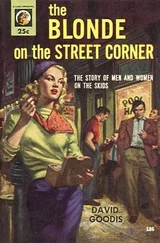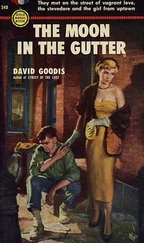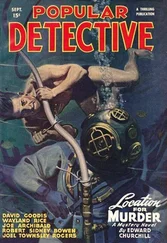“I understand it all too well,” Tawny said. “Better than most of the people on your planet. But the people here don’t. I’m pretty good at my job.”
“I guess you are,” Mike said. He was falling more deeply in love with this woman the more they talked. Her depth was nothing less than incredible to him. And her strength was intoxicating.
“The civil war in Cambodia lasted 5 long years and exacted a terrible toll on the citizens of Cambodia. In the end Pol Pot and the Khmer Rouge won, and took over control of the government. Pol Pot wasn’t just a communist; he was also a staunch nationalist. He wanted to bring the nation of Kampuchea, the old name for Cambodia, back to the greatness it once had been in the past.”
“Make Kampuchea great again,” Mike said quietly.
“Exactly, and literally,” Tawny said.
“In Pol Pot’s view Kampuchea was a world leader when the economy was strictly agrarian. Also, he felt as though immigrants and foreigners were diluting the blood line of Kampucheans, and undermining his countries return to greatness. Non-Cambodians were rounded up and imprisoned, killed, or deported. He also launched an all-out campaign to convince the Cambodian people that they were under constant threat of having their boarders overrun by the Vietnamese. Massive time and resource was spent to fortify the border between Cambodia and Vietnam.”
“Sounds familiar,” Mike said flatly.
“On Day One of Pol Pot’s regime, he sent troops into all of the major cities and told them to completely evacuate the people. He told the people in the cities that they were under direct threat of being bombed by the United States, and that it could happen at any time that very day. Since the US had already bombed Cambodia during recent years in conjunction with the war they were waging in Vietnam, the threat was real to the residence of the cities.”
“Phnom Penh was totally empty in just a few days,” she said.
“Where did they all go?” Mike asked.
“Just out into the country side,” She said. “They were prodded along the road by Khmer Rouge troops as they carried the few possessions they were able to throw together when they were evacuated. Most were taken to work camps so they could work in the fields producing rice. But the most heinous part was the interrogation camps and the killing fields.”
“I’ve heard of the killing fields,” Mike said.
“The government felt that anyone that had an education was a threat to returning Kampuchea to what it once was. People that were doctors, lawyers, or any other kind of professional were arrested and executed. People that were thought to be collaborators with foreign governments or part of groups that were a threat to the Khmer regime were arrested and tortured, until the admitted they were subversives. If they survived the torture they were then executed. There were cases like a ten-year-old girl that eventually admitted to working for both the CIA and KGB.”
“Ten years old,” she said to Mike for emphasis. He just looked back at her speechless.
“Most of the prisons that were used to hold these thousands of prisoners were converted schools. They still stand today as a monument to insanity.”
“The people that were deemed a threat to the government were transported out of the city to a place where they would be housed for a few days while they waited to be executed.”
“The killing fields,” Mike said.
“Yes,” Tawny said. “That place is still there today and every single person on the planet should visit it, and realize how easy it is to let that happen all over again.”
“Once the prisoners arrived at the execution spot the were only held long enough for them to be killed. The executioners were told to save ammunition so the victims were usually stabbed or had their throats slit, then the bodies were shoved into huge open pits. Eventually they had to have more executioners, but there were only so many knives and bayonets to go around since most of the weapons were at the border keeping people safe from the nonexistent invading hoard of Vietnamese. So, they had to improvise. Thousands of people were killed by having their throats cut with the sharp edge of a palm frond stalk.”
“The babies that were allowed to stay with their mothers,” She stopped to collect herself. Tears were welling up in her eyes. “The babies were slammed against a tree, and their tiny lifeless bodies were flung into a separate pit.”
“I,” Mike said. Tears in his eyes as well. “I don’t even know what to say.”
“Today you can still visit that place,” Tawny went on as she dried her eyes. “There’s a tower that must be 100 feet high containing skulls of victims that have been unearthed from the killing pits. Everywhere along the path that winds through excavation sites are signs that remind visitors to be careful and not step on human remains. Bones, teeth, bits of clothing, and personal effects are being exposed by the elements everywhere.
“The amazing thing is that Khmer people, people that were part of this slaughter, still live among the population.”
“How can they let them live?” Mike asked amazed.
“That’s how the Cambodian people are,” she said. “Gentle, beautiful people that love life and believe in live, and let live. Some of them were just corrupted by a compelling force. And people just stood by watching it happen.”
“How does that happen?” Mike asked.
“It has always happened,” Tawny said. “People may say ‘never again’, but what they really mean is ‘never again to me, or my people’. The German Lutheran pastor Martin Niemoller summed up the issue beautifully. He said, ‘First, they came for the Communists, and I did not speak out, because I was not a Communist. Then they came for the Trade Unionists, and I did not speak out, because I was not a Trade Unionist. Then they came for the Jews, and I did not speak out, because I was not a Jew. Then they came for me… and there was no one left to speak for me.’”
“It’s a constant part of history on earth. Look at the Spanish inquisition. But people think, ‘that was another time and another country. That could never happen here… or to me.’ It will happen again, and again. And people will always look back saying ‘never again,’ instead of realizing they are slowly allowing the same thing to happen all over again. They just justify inaction by pointing out irrelevant differences, or personally irrelevant talking points.”
“It will always happen again, Mike. And I guess that is the one singular point which we’ve been trying to accomplish for thousands of years. Luckily we have tenacity and a general air of optimism.”
“Lucky for that…” Mike said.
They sat in silence for a few minutes, both lost in reflection of the conversation.
“Did you stay in the capitol, then?” Mike said finally.
“No,” Tawny said. “I worked there for a little while, then I got hired onto a tour boat that was going up the Sab River when the water was up. It really was quite amazing. Running up that river. Fishing boats, junks and barges working endlessly up and down that muddy waterway.”
“Eventually I got onto a small fishing boat with a beautiful Cambodian family that kind of just adopted me, and we went all the way across Tonle Sap Lake and ended up in the most enthralling city on the face of the planet, Siem Reap.”
Tawny looked wistfully of in the distance remembering the beauty of the Angkor region of Cambodia.
“It really is the closest thing to Hale I’ve ever seen on earth.” She said.
“I lived just outside the ancient temple complex at Angkor Wat. I was there when they came back for me.”
“Honestly, Mike,” she said. “It was touch and go there for a minute as to whether I was going to come back or not. I knew that I couldn’t exist in human society for ever. There had been too many close calls. In the end I simply turned my back on all of that, and came home. I’ve never been back, although I went on several more missions. I just stayed on the ship and greeted subjects.”
Читать дальше












